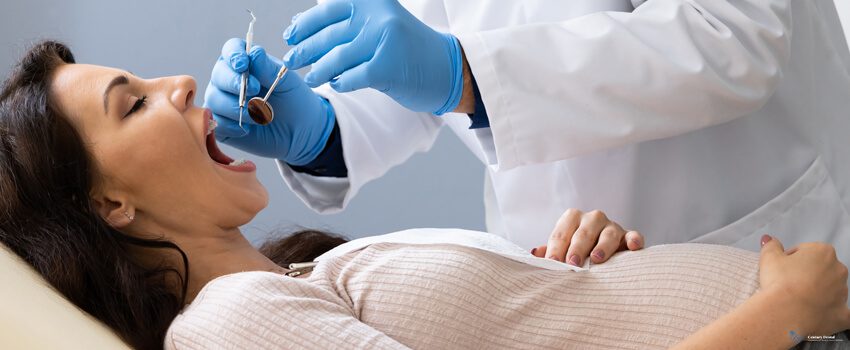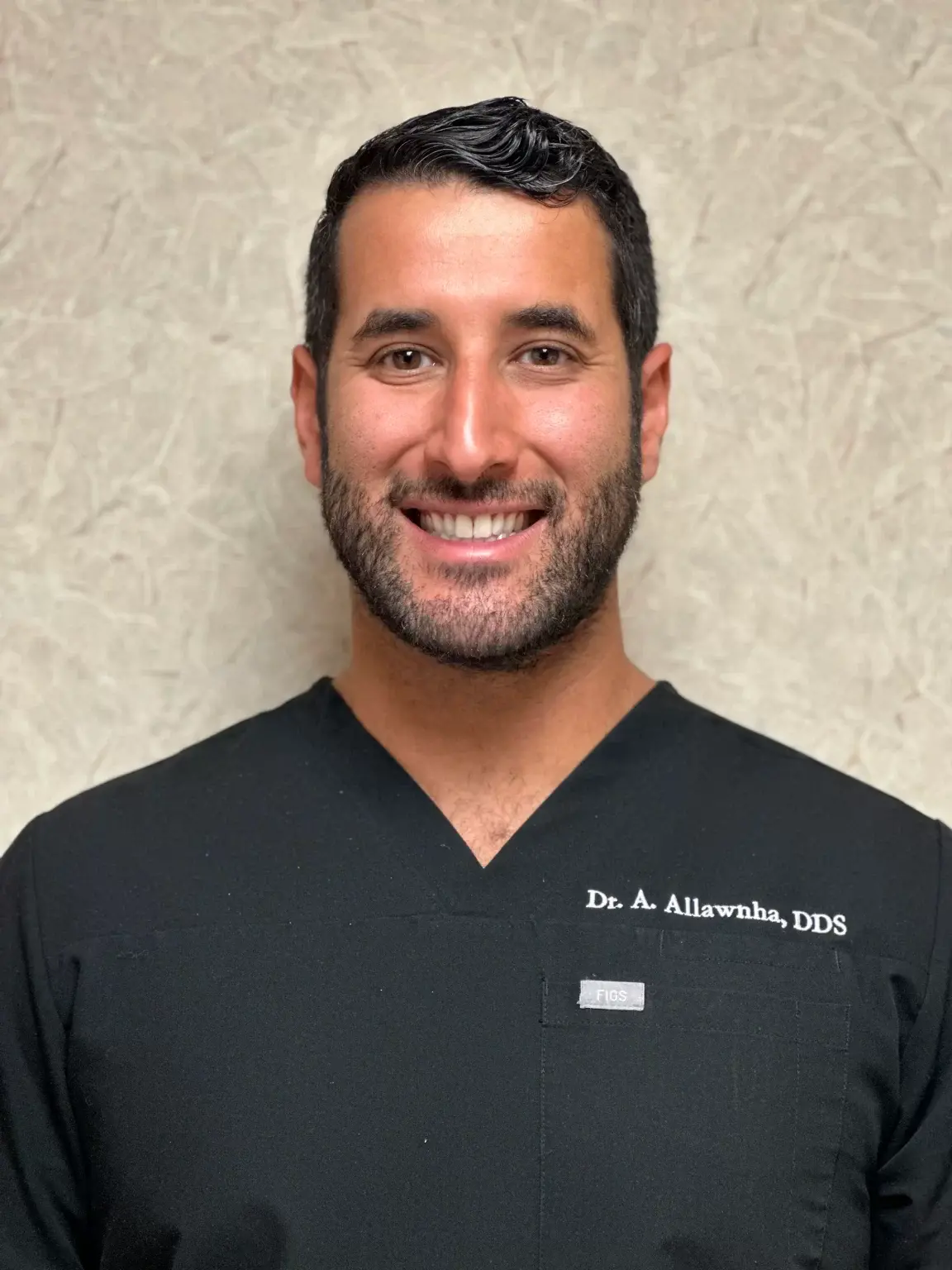It’s important to take care of your oral health if you are pregnant.
For your health and your baby’s, it’s important to maintain good oral hygiene. Pregnancy makes you more vulnerable to periodontal diseases and sets off many issues hidden before and during the early months of pregnancy. The hormonal changes your body experiences during pregnancy can make any existing dental problem you may have worse.
Learning more about dental issues and pregnancy is essential if you’re planning to get pregnant or already expecting.
Dental Issues and Pregnancy
Dental Cavities
Pregnant mothers are at high risk of developing cavities due to changes in their eating habits and lifestyles. Bacteria from these cavities can also reach the baby’s mouth, leading to early childhood cavities that need considerable care.
Vomiting
Vomiting is also another topic connected to dental issues and pregnancy. Pregnancy hormones weaken the ring of muscles that keep food in the stomach, which sometimes causes some of the stomach’s contents to come back up. Strong stomach acids can cause gastric reflux or vomiting that damages enamel and leads to tooth decay.
Gum Problems
Gingivitis occurs in as many as 60% to 75% of pregnant ladies. This is the stage of periodontal disease where the gums are infected and lead to the loss of bone support. A tooth without sufficient bone support may become loose and need extraction. It also results in poor pregnancy outcomes, like preterm births and low birth weights.
Pregnancy epulis or pyogenic granuloma is another gum problem related to pregnancy, where red, round growths that easily bleed appear on the gums.
Gagging While Brushing Teeth
Some women find brushing back teeth makes them gag, which is a problem. It’s important to brush all of your teeth, even those at the back; otherwise, it will cause cavities and other dental problems.
Pregnancy Gingivitis
Pregnancy gingivitis will always come up when talking about dental issues and pregnancy. Pregnancy gingivitis is caused by hormonal changes, which increase blood flow to the gum tissue, making your gums more sensitive, irritable, swollen, and susceptible to bleeding.
Hormonal changes can also cause periodontal infections, making it easier to get plaque on your teeth. This makes it more vulnerable to developing gingivitis and bleeding gums during pregnancy.
Pregnancy gingivitis usually becomes more severe during the second trimester. After the birth of your baby, your gums will usually return to their normal state. You should also notice a decrease in bleeding and sensitivity. Contact your dentist immediately if swelling or irritation persists after delivery.
Symptoms of Gum Disease During Pregnancy
Can you lose your teeth from pregnancy? Yes, if you don’t take care of your teeth. Gingivitis can turn into periodontitis, damaging tissues, ligaments, and bones, eventually leading to tooth loss.
Some symptoms to watch out for include:
-
Red gums
-
Pockets between gums and teeth.
-
Sensitive and loose teeth
-
Chewing difficulties or pain
-
Bad teeth alignment
-
Bad breath
Tips to Prevent Gum Disease During Pregnancy
Here are some tips to help prevent gum disease and bleeding gums during pregnancy:
Keep Up Good Oral Hygiene
Flossing is a vital part of dental hygiene. It removes food stuck between teeth and lowers plaque and bacteria levels. While most people floss twice daily, not everyone does. Learning how to floss properly is important; improper flossing can damage your gums and teeth.
It also helps to use fluoride toothpaste and mouthwash at least twice a day. Some of them have antiseptic ingredients that help kill plaque-causing bacteria.
Self-Check
Try to observe any changes to your gums during pregnancy. Talk to your dentist as soon as you feel any discomfort, bleeding, or swelling in your gums.
Increase Vitamin Intake
Vitamin D is essential for controlling calcium and phosphorus levels in the blood. Prenatal vitamin intake and frequency of milk consumption are both factors that influence vitamin D levels. Increase your vitamin D intake to ensure your baby’s oral health. Talk to your doctor about supplements. You can also try to expose your skin to sunlight; it’s one of the most effective and natural ways to get vitamin D.
Increase Calcium Intake
You will need more calcium during pregnancy to protect your bones and your baby’s health. Some good sources of calcium include:
-
Milk
-
Cheese
-
Yogurt, either plain or sugar-free
-
Calcium-fortified soy, almond, and other types of milk if you can’t have dairy
Eat a Healthy Diet
Dark, green leafy vegetables like spinach and broccoli are natural sources of folate, which helps prevent spina bifida and congenital abnormalities in the brain and the spine. Their high water and fiber content also help clean your teeth.
Visit the Dentist During the 2nd Trimester
You can still have your teeth treated even if you are pregnant. The second trimester, or weeks 14 to 20, is the best time for elective dental care for pregnant women.
Dentists also provide deep cleaning to remove plaque buildup, one of the main causes of gum disease.
If you’re planning to become pregnant, consult your dentist about any possible treatments they can perform before you get pregnant.
Gum Disease Treatments
Dental issues and pregnancy must not make you worry; your dentist or periodontist can perform or recommend the following for you:
Root Planing and Tooth Scaling
Tooth scaling and root planing are the most common solutions dentists provide when facing dental issues and pregnancy. Dentists will remove tartar from the teeth above and below the gum line and smooth out any rough spots. This makes it harder for bacteria to accumulate and leads to more tartar and plaque buildup.
Flap Surgery
Your dentist may perform flap surgery if the gum inflammation persists to remove the tartar that has formed between the teeth and gum tissue. The pockets caused by gum disease are closed with stitches to reattach the gum tissue to the teeth. Reducing the pockets makes it easier to floss and brush your teeth.
Grafts
You may need to have bone or tissue implants for severe cases of periodontitis to replace damaged tissue and bone. It may also involve guided tissue regeneration, where a dentist or periodontist places small pieces of mesh between the jawbone and the gums. It allows both bone and tissue to grow again while keeping the gum tissue from expanding in the same area where the bone is, giving the grafts room to grow.
Antibiotics
Your doctor may prescribe antibiotics to combat severe bacterial infections. Always consult a doctor before taking any medication.
Some of their recommendations may include:
Doxycycline gel: it’s an antibiotic that shrinks the pockets caused by periodontal disease. After a root planing or tooth scaling procedure, the periodontist will apply it to the pockets, slowly releasing the antibiotic for a week.
Miniature minocycline microspheres: these are small particles that contain minocycline. Periodontists also place them in the tissue pockets after tooth scaling.
Doxycycline tablets: these prevent excessive enzymes from destroying gum tissue after periodontal treatment.
Chlorhexidine chip: This is an antimicrobial, small-sized gelatin chip placed in a tissue pouch along the gum line, gradually releasing chlorhexidine over time.
Is It Safe to Have Dental Work While Pregnant?
Expecting moms often ask questions about their dental issues and pregnancy. Annual exams and preventive dental cleanings during pregnancy are safe and recommended. Your gums may become more sensitive due to the increase in hormone levels during pregnancy.
Having dental work while pregnant helps prevent gum diseases and other oral infections, which have been linked to preterm birth.
Keep Your Teeth Healthy During Pregnancy with Century Dental
Visit our dentist in South Pasadena, FL, if you’re experiencing unbearable tooth pain while pregnant. They can also advise you on what to use for toothache during pregnancy and other oral health issues. Call us for any inquiries and concerns.





